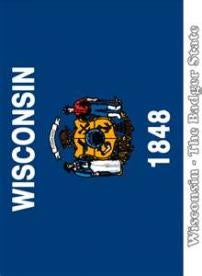On Tuesday, October 25th, the Wisconsin Assembly is scheduled to vote on AB 302. The bill makes several significant changes to chapter 50 of the Wisconsin Statutes. This is the statute which sets forth regulations for nursing homes. The bill passed out of the Assembly Aging and Long Term Care Committee on a 4-2 vote.
Summary of AB 302
Under current law, if a nursing home receives Medicare or Medicaid funding, it is subject to both state and federal requirements. The bill limits the ability of the Department of Health Services (DHS) to subject nursing homes to penalties for violating both state and federal regulations. The bill prohibits DHS from issuing a notice of a state violation if DHS has cited the home for a violation of federal law, based on the same facts.
The bill allows DHS to seek an injunction to enjoin the nursing home from repeated violations of certain federal requirements. And, the bill creates a 120-day time limit for DHS to impose a forfeiture for a violation.
The bill extends to 60 days the time period by which a nursing home must pay forfeitures to DHS, and also changes from 10 to 60 days the time period within which a nursing home may pay a forfeiture to have the forfeiture amounts reduced by 35 percent.
The bill extends the deadline for a nursing home to request a hearing on a finding that the nursing home violated a state requirement to 60 days and also extends the deadline for requesting a hearing on a forfeiture to 60 days after notice. The bill further provides that if the nursing home timely appeals both a finding of violation and a forfeiture, the hearings on the violation and the forfeiture will be consolidated.
The bill expands the standard for DHS issuance of a conditional license for a nursing home to include a continuing violation of federal law that constitutes immediate jeopardy or actual harm not involving immediate jeopardy to a nursing home resident.
The bill expands the standard for suspension of new admissions to a nursing home to include circumstances under which a nursing home received written notice of a violation that involved immediate jeopardy to a resident; a class A violation; or three or more class B violations or violations that constituted actual harm not involving immediate jeopardy to a resident. These circumstances must have occurred both in the previous 15 months and in any 15-month period during the 36 months immediately preceding the previous 15 months. Under the bill, a suspension of admissions may begin only 90 days after a nursing home receives its last notice of a violation if DHS determines that the violation in uncorrected 90 days after the last notice. Suspension of admissions must remain in effect until DHS determines that the nursing home has corrected the violation in question.
This bill permits DHS to suspend or revoke a nursing home license if the nursing home has substantially failed to comply with specified state law or with federal requirements related to the operation of a nursing home.
The bill specifies that a nursing home operating under a probationary license must substantially comply with requirements under certain federal regulations related to the operation of a nursing home, if applicable, in order to obtain a regular license.
The bill allows DHS to distribute moneys, including civil money penalties, for innovative projects designed to protect the property and the health, safety, and welfare of nursing home residents and to improve the efficiency and cost effectiveness of the operation of nursing home facilities. Under the bill, DHS must establish and maintain a quality assurance and improvement committee to review proposals and award moneys for such projects.
The companion bill, SB 212, was passed out of the Senate Committee on Public Health, Human Services, and Revenue on a 4-1 vote. The bill has not yet been scheduled for a floor vote.
The bill has the support of the nursing home industry and AARP. The bill is opposed by the Wisconsin Association For Justice. It is also opposed by several school and library related associations, because the fiscal estimate indicates an anticipated decrease in forfeitures of $1.5 million. The forfeitures go into the Common School Fund, which is used to support libraries.
The Health Law team at von Briesen will continue to monitor and report on the progress of Assembly Bill 302 and Senate Bill 212.



 i
i

